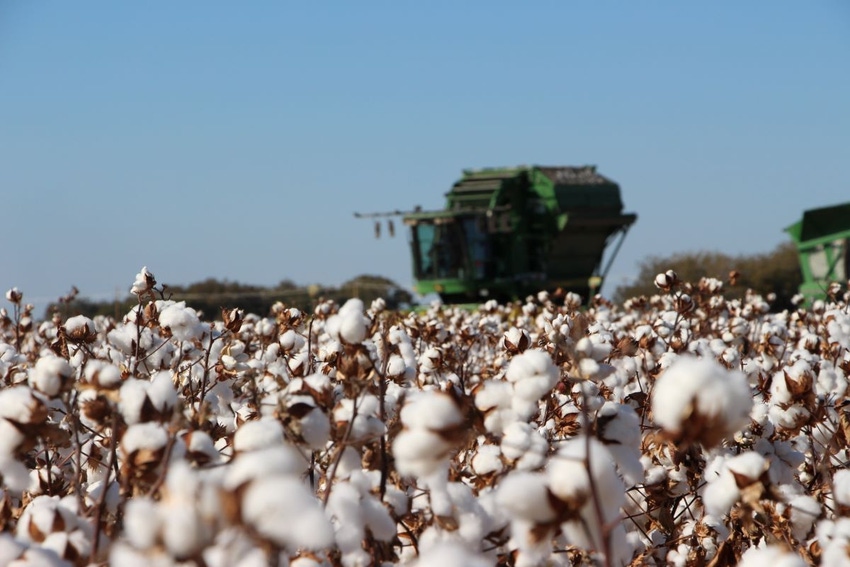March 22, 2021

Sponsored Content
Key stakeholders from across the Southwest considering final variety selections recently attended the annual Cotton Connections, virtual for the first time. Growers, Extension specialists and consultants saw company and university data illustrating the performance of key competitors in each region.
Ken Lege, Ph.D., one of three PhytoGen® cotton development specialists (CDSs) in the Southwest, presented data from the collective CDS team. The wealth of regional data about PhytoGen brand varieties came from on-farm trials with varieties in late-stage development, as well as university research.
“We suggest producers not limit themselves when it comes to data. It’s best to review multiple trials from several seasons, similar water availability and growing season, to get the right varieties for your farm,” Lege said.
Strong performance across Southwest regions
Averaged across four of the Texas A&M AgriLife irrigated and dryland Official Variety Trials, PhytoGen cottonseed had 7 of the top 10 performers, and 9 of the top 15. Going from north to south of the Southwest Plains, Lege presented recommendations for varieties spanning across the region.
For example, PhytoGen brand PHY 350 W3FE shines in many locations across the Southwest. It’s a very stable performer that fits on tougher ground and can produce some nice, top-end yields on dryland, but it is also widely adapted for irrigation.
“PHY 350 W3FE is aggressive growing, so it may need more management on irrigated acres,” Lege noted.
In the greater Lubbock area on the Caprock, the relatively new PhytoGen brand PHY 394 W3FE proves to be a contender. It’s a short-stature variety bred in Lubbock, Texas, by the PhytoGen breeding program and is highly resistant to vert wilt. It’s early to midmaturing, with excellent yield and excellent fiber length.
“PHY 394 W3FE is one that excels on moderate to good water,” Lege explained, “And it has excellent storm tolerance, holding tight in the bur.”
Most widely adapted across the Southern High Plains on dryland or irrigated, is the very good yielder, PhytoGen brand variety PHY 480 W3FE. It’s a strong midseason variety, with a medium-tall stature, allowing for good growth on low water. Lege said this is one of the best varieties available for root-knot nematode (RKN) ground.
Breaking down the benefits of breeding traits
The team revealed the number of RKN-resistant varieties available from PhytoGen cottonseed is ever-growing, some with the addition of the new reniform resistance.
“Remember: Nematodes are stress multipliers, so you really see dramatic differences in the field versus susceptible varieties,” Lege said.
A Texas A&M AgriLife comparison of cotton varieties with RKN resistance was recently published in the Journal of Nematology and illustrated performance in the Southern High Plains. PhytoGen brand varieties with RKN resistance had a 17% yield increase compared to competitors with an average of 94% reduction of RKN populations.
In addition to RKN, Lege noted the stellar performance of the new reniform trait from PhytoGen has contributed to the high demand of their reniform-resistant varieties. Two years of PhytoGen Innovation Plots in Lubbock and Lynn counties showed a 31% yield increase and a 55% reniform reduction from susceptible varieties.
“If you haven’t seen our reniform varieties, you owe it to yourself to see them performing out in the field, particularly in High Plains/Rolling Plains where low water or water limiting situations accentuate the difference,” Lege added.
In addition to nematode protection, Lege explained PhytoGen currently offers nine varieties that provide some level of tolerance to verticillium wilt, with more in development.
“Growers also like the security that all PhytoGen W3FE varieties are resistant to bacterial blight,” Lege added, explaining it’s good insurance against this yield robber.
Lege acknowledged producers consider pest pressures, soil type, water availability and other key factors before making variety decisions. He also recommends talking with PhytoGen cotton development specialists who have broader perspectives to help make those final decisions.
“PhytoGen cotton development specialists look at cotton fields and trial data all across the Southwest and the Cotton Belt,” Lege said. “We compare notes and share resources that producers can tap into. We’re here to help and just a phone call away.”
To dig into the data from Texas A&M Agrilife, go to online-version-Texas-Plains-Region-Official-Cotton-Variety-Trials-2020-1.pdf (tamu.edu).
™ ® Trademarks of Corteva Agriscience and its affiliated companies.
About the Author(s)
You May Also Like




